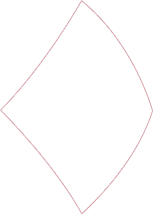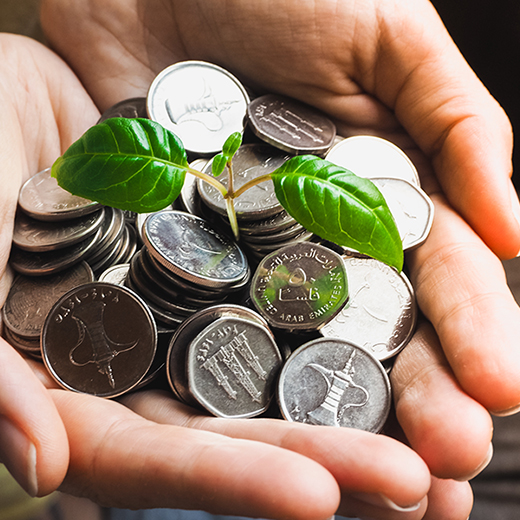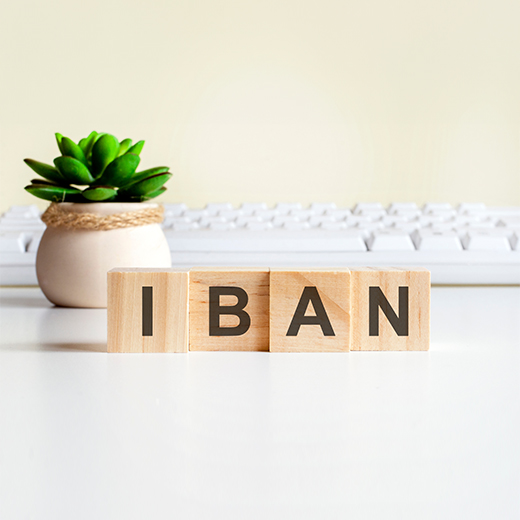A current account is a bank account that you (Customer) use to manage all of your day-to-day payments. It is the account your salary gets paid into, where your bills are debited from and the account you will use to withdraw money from cash machines (ATMs). It is also an account you are likely to use most to pay for everyday goods and services with a debit card.
There are different kinds of current accounts in DIB. A standard account will usually give you a debit card and cheque book.
DIB current accounts, offer internet banking, mobile banking, and in-branch banking, allowing accountholders to do all of your day-to-day banking either on the go or face to face. These accounts will also entitle you to avail some special services like a Salary in Advance facility to help with your sudden and unexpected expenses.
How do you qualify?
The kind of current account that you qualify for, usually depends on your monthly income, credit score, and personal circumstances.
Savings
DIB investment savings account is structured on the principle of Mudaraba whereunder the depositor (Rab Al Mal) is able to deposit its savings as a deposit for an unlimited period with DIB (Mudarib) and authorizes DIB (as Mudarib) to invest such funds on the basis of unrestricted Mudaraba contract in accordance with the principles of Sharia.
The invested funds under the subject product participate in the profit from the first day of such deposit. Funds of investment savings deposit account and other un-restricted investment deposit accounts are invested on unrestricted Mudaraba basis in the joint investment pool amongst the depositors and the shareholders. The profit entitlement of the depositors under the subject account is determined in accordance with the weightages as notified by DIB and the average balance of the deposit during the profit distribution is considered for profit distribution.
In case of any loss, the depositor (Rab Al Mal) shall bear a loss pro-rated against its share in the Mudaraba.
In case the deposited amount (on any day) in this account is less than a specified limit then the account shall be treated as a current account and will not be entitled to participate in the generated profits.
If you can afford to save money you do so. It is a general rule of life that each should try to keep at least three months’ salary in the bank at all times – it can be called as an ‘emergency fund’ - just in case the worst happens, and you lose your job.
Building up a healthy savings account is good for your peace of mind and for your ability to plan ahead and achieve life’s milestones – like buying a car, getting married, or purchasing a property.
Dubai Islamic Bank, has saving accounts for minors, to help young people start to learn financial literacy and how to make saving. Dubai Islamic Bank’s ‘Shaatir Savings’ or ‘Al Islami’ accounts are a simple, fun, and exciting way for youngsters to understand what a bank account is and why it is important.
Savings accounts sometimes limit the number of certain types of transfers or withdrawals you can make from the account every month or year.
Cut back on leisurely spends
If you can afford to put money away every month then the best way to start is to examine your income to make sure you don’t leave yourself short by saving. You can understand this by creating a budget that includes all of your fixed expenses every month – travel, food, bills, rent, and toiletries. This exercise can also help you to identify where you might be able to cut back on unnecessary spending.
Once you know how much you can afford to save every month, set up automated monthly transfers to your savings account so that the money comes out of your current account, and you don’t accidentally spend it.
Find creative ways to save (Adopt a saving habit)
Never forget that money naturally depreciates because of inflation. If the cost of living goes up by 1% in one year, your savings are automatically depreciates by 1%. So, it is important to be aware that there are different ways to save that will pay you a profit, depending on how much you save, how long you save for and whether or not you want to have regular access to it. The best way to save is to try to find a Sharia Complaint savings account that pays you a Halal profit rate that is higher than the rate of inflation.
Once you get in the hang of saving money and getting paid for it, you can start to think about other ways to make your money work harder for you – pension schemes or other investment plans can help you to get more from your money. It’s a great idea to speak to a financial advisor or a bank manager that you have a good relationship with to help you understand how the markets work, what the associated risks might be, and how you can invest in a way that reflects your situation, expectations and give you a Sharia Complaint return.
How does a Saving Account differ from a Current Account?
Opening a bank account always put the individuals in doubt about the right choice for them. Most of the bank accounts are common in their nature but the choice of the best selection depends primarily on your banking needs.
The saving account is a deposit account with limited transactions compared to the current account that is meant for ongoing transactions and the need to access the account frequently. The saving account is convenient option to save your money or open it for minors, in different currencies, and earn a profit on your deposit, which is beneficial for any future emergencies.
The requirement to open the current account or maintain a minimum balance is much higher than the saving account. However, Individuals may avail more facilities offered through the current account such as Salary in Advance facility, unlimited withdrawals or deposits, with more features that are suitable for all business purposes.
Savings Account is an income generating account while current account is just safe keeping accounts without any income. On the other hand, in case of any loss, your saving account will bear pro rata loss sustained by the investment while in case of current account, it is guaranteed and you will not lose your capital.
Investments
DIB provides investment services for all kinds of customers - corporate, institutional, and sovereign / quasi-sovereign clients (governments funds). For personal investors, DIB provides an invaluable source of advice and guidance on how to grow capital and plan for the future.
Dubai Islamic Bank assists with every aspect of the Customer’s finance requirement. Dedicated professionals provide innovative Sharia-compliant capital raising and financing solutions in line with the Customer’s changing requirements and market conditions.
How do Islamic and non-Islamic investments differ?
One of the core differences between Sharia compliant and Sharia non-compliant investment practices is interest. If an enterprise is financed by debt with an obligation to pay interest, the risk of the business is not being shared fairly.
Islamic investment vehicles tend to be asset-backed, with investors receiving a direct profit rather than interest. Being asset-backed, they are more stable, and the risk is shared more equally.
Islamic investment products include Sukuk, Syndicated Facilities, Project Finance & Club Facilities – all structured and documented in accordance with the principles of Sharia.
A general rule of thumb
Beware of investments that appear to be too good to be true. You may be approached about investing in high-return investment opportunities in what is likely a non-existing business. They may claim to have invented a cure for the virus or have the technology or other innovations that will be in demand by hospitals. Do not provide any funds for investments or provide any personal information until you talk to your investment broker or advisor first. They should be able to determine the credibility of the investment and claims – and ensure they are Sharia compliant.
What you need to know about financing?
Financing in Islamic banks means that you will avail some facilities such as car, home, goods, assets etc. through Sharia complaint structures and you will pay your monthly instalments to the Islamic bank. To avail this service, you need to apply directly for these facilities online, over the phone, or in person by visiting DIB’s nearest branch to you.
Once DIB approves your application – which will typically happen after a credit check – it will offer you the facility and upon its acceptance you will execute the required documents and avail of the required finance facility. After availing the finance facility, you will pay normally in monthly installments as per the agreed payment schedule of the finance documents, until the total amount of the finance facility is paid off.
DIB provides the Customers with all kinds of finances in line with Sharia principles.
Always remember that there are alternatives to financing – like saving a little every month to make your purchase with cash. Good planning, sensible monthly savings, and a little financial discipline go a long way to building up a good credit score, avoiding bank financings altogether, or securing competitive rates when you do need to avail financings.
What happens when you miss a payment?
If you miss a payment, DIB shall not charge you a missed or late payment fee. However, as per the transaction documents you will undertake that in case of any late payment, you will donate a specific amount to be transferred by DIB to a charity account on your behalf. In addition to this, any late payment can damage your credit score.
Of course, life happens and sometimes each can be made redundant, or other life events challenge the stability of finances. When these things happen and you fear that you might not be in a position to meet your next payment date, you should always call DIB. DIB is there to work with you to help you get through difficult times.
DIB will help you by listening to your situation and coming up with possible solutions that can help you in the near, mid, and long term. When you think about it from the bank’s perspective, DIB wants to get you back on track so that you can pay your instalments. Solutions might include taking a finance holiday or restructuring your finances to make them more affordable.
Buying A New Home (Home Finance)
Buying a home is one of the most exciting milestones in every adult’s life – but it can be daunting. With so many different ways to get a home finance, a good starting point would be to check in with DIB home finance team to get some advice on how home finances work.
The amount that you can buy your home will depend upon what your salary is, the payment term, and how much you have to participate in buying the home. When deciding how affordable your home finance is, you also need to bear in mind that. DIB will offer a range of different home finance products. At Dubai Islamic Bank, all home finances are Sharia compliant, and they come with minimum salary requirements, long tenures, maximum finance amount, competitive profit rates and seamless payment solutions.
When seeking a home finance, DIB will carry out a credit check to assess your suitability as a customer. The kind of home finance you apply for – and subsequent profit rate – will vary depending on whether the property you are buying is a resale, a new-build, or an off-plan purchase.
Sharia-compliant home financing?
Sharia-compliant home financing is structured differently to non-Islamic home financing products.
DIB Home Finance (main product) is based on the principles of Ijara. Under this product, DIB will purchase a property or an undivided share thereof (the Property) from a third-party seller or the Customer and then lease the same to the Customer for a certain period of time on Ijara Muntahiya bittamleek basis. At the successful completion of the lease period, DIB, upon exercise of the sale undertaking by the Customer, will be obliged to sell the Property to the Customer for a nominal value.
DIB needs collateral to protect itself if you are unable to meet your monthly instalments, So, the property will be owned by DIB throughout the financing period but the property may remain registered in your name. However, the property will remain mortgaged with the land department in favour of DIB as a security.













